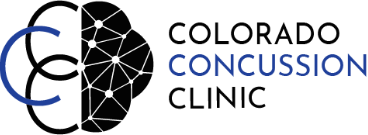Fatigue is one of the most common symptoms our patients report after they experience a concussion. It can reveal itself physically, cognitively, or even emotionally. Our group of speech language pathologists at the Colorado Concussion Clinic often work with our patients to manage each type using a holistic and individualized approach to cognitive therapy. While there are many different ways to treat fatigue, here are four ways we might address it in therapy with you:
#1:
First, it is important to understand your triggers for fatigue (e.g., loud noises, poor sleep quality, etc.) and the type of fatigue you experience depending on the activity you complete. We may recommend you begin logging or tracking your fatigue levels during the day to help increase your awareness. For example, you might find that some activities are emotionally or physically fatiguing, or both. Our goal is to help you tune into this and pay attention to the way each activity makes you feel. Having this level of insight can help you adjust your schedule to better suit your needs.
#2:
We recommend creating consistent routines to follow during the day to help conserve your energy. Doing so will decrease the need to make decisions throughout the day, which often takes more time and energy than expected. We’ll help you identify routine tasks and create a consistent schedule for these throughout your week. Following a routine will also improve your ability to focus and remember to complete those tasks.
#3:
Next, we may teach you how to strategically plan your day based on the information we learn through your fatigue log while also helping you maintain your routines. We often recommend that you complete tasks in a specific way to conserve your energy such as – planning a rest break before and after your physical therapy appointments, or completing a cognitively challenging task in the morning when you have the most energy. Our intention is to teach you how to plan your day to maximize your energy and manage your symptoms proactively.
#4:
Finally, to improve your energy levels and reduce fatigue, it is always important to prioritize activities that promote overall wellness and a healthy brain, especially after sustaining a concussion. To manage this from a cognitive perspective, we may help you develop goals for your sleep or exercise routines, or help you start incorporating stress management techniques into your day. We all know how easy it is to forget even the simplest things that are good for us, like maintaining a good sleep schedule or prioritizing your mental health. And after a concussion, these things may feel like more of a challenge. Our goal is to guide and support you in reaching your goals, and help you feel more like yourself as soon as possible!
- Mari Gottlieb, MA CCC-SLP

